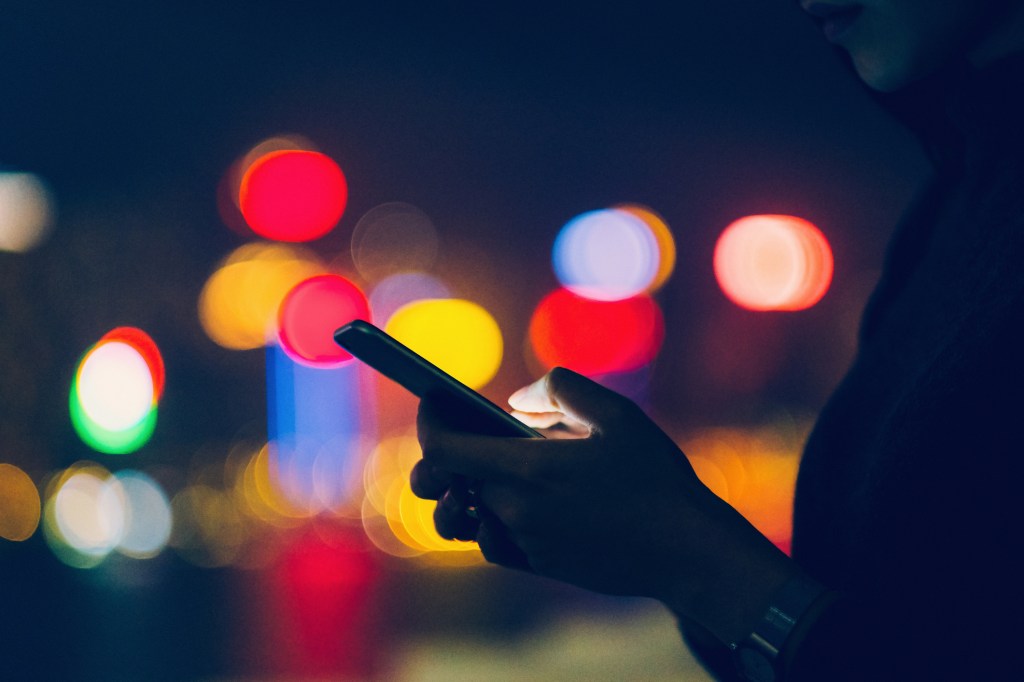For a seemingly tough pitch, Light has had little trouble getting noticed. The company has run two successful crowdfunding campaigns for a pair of minimalist phones designed to augment or replace the smartphone. Today the startup announced that it will be shipping the second version of the handset, which introduces a handful of features back into the product, like texting.
Ahead of the launch, we spoke to Light’s founders, Kaiwei Tang and Joe Hollier, about funding, feature glut and the future of the handset.
How it all began
Brian Heater: The project essentially started as an in-house at Google, is that correct?
Kaiwei Tang: We met in 2014 in Google’s incubator called 30 Weeks. That’s where we met and started talking about Light Phone eventually.
Joe Hollier: 30 Weeks program was an experiment that came out of the Google creative lab, and their hypothesis was that if given the right resources, guidance, designers might be able to create new creative startups, and that designers should be on the founding table of companies.
So their hypothesis was that we as designers would be able to imagine a new startup in the software application space, and then through designing the end product, which is how the Google creative lab works, we’d be able to inspire the engineers and investors that we would need to make the product a reality.
Brian: What did you see in the market that wasn’t being fulfilled by countless different smartphone companies?
Joe: People were feeling overwhelmed by their smartphone and craving some escape, and we didn’t really see an escape.
When you were going out of your house, you always brought your smartphone because what if you needed to make a call? What if there was an emergency? But there was no way to leave the larger internet at large behind because we’ve become so sucked into the smartphone world.
I think we didn’t really see an alternative. There was no middle ground. There’s no product that was saying, “Hey, here’s a phone that’s just the phone so that you can enjoy a few hours here and there.” So I think the opportunity was, is there a device that could allow you to leave the smartphone behind?
Brian: Once the idea was formulated, did you take it to investors or did you immediately go the crowdfunding route?
Kai: We didn’t take the idea to investors first. We’ve been pitching in the incubator to gather the right investors to review our ideas. We pitched design concepts to investors to get input, but we didn’t really go out and try to raise money when we started. We actually spent a lot of time rendering and putting the story together, and put it on crowdfunding first.
Joe: We actually went out and started testing with what they call MVP, minimum viable product, right away, and for us that was giving people flip phones, and a small list of contacts for either a Saturday or a whole weekend, and seeing just our hypothesis of people would enjoy disconnecting from their phone for a few hours. Was there any actual residence there?

Scaling Light Phone
Brian: What’s the funding to date, and who are the investors?
Kai: The last five years we raised a total of $8.4 million from various VC investors, including Foxconn. Tim Kendall is the CEO of Moment. He was from Pinterest and Facebook previously, as well as the co-founder of Lyft, John Zimmer. We actually just closed the seed round recently and that’s still the whole total $8.4 million additional to the crowdfunding investment. [Note: The combined total of two crowdfunding campaigns totals just shy of $4 million.]
Brian: There are a number of pain points for a product like this, which is a bit niche. When you meet with investors, what are the expectations as far as what sales are going to be initially, and how quickly you’re able to scale?
Kai: When we came to [Foxconn] with the first Light Phone, it was just a simplified, voice-only device. Right after the pitch, the sales VP said, “Hey Kai, I need Light Phone right now. Smartphones have ruined my life. My kids don’t talk to me.” And then we start talking about all the potential for such a device.
Every smartphone user can theoretically have a secondary phone, and just assuming, 1% of smartphone users that loved the idea that buy a Light Phone for themselves or for their kids, that’s probably a 20 million units a year business model.
That makes our business case. Back to four or five years ago, no one really thought about a secondary phone. So we were leading this conversation when we started.
Brian: How many units have you actually sold at this point?
Kai: Around tens of thousands. Light Phone 1, we shipped around 15,000 units, and we also have 40,000 reservations. We haven’t fulfilled for Light Phone 1. Our reason being Light Phone 1 is a 2G device, and we decided to not build more 2G devices and focus on Light Phone 2.
So in Light Phone 2, I think it’s also around 10,000 pre-orders at this point. I want to also emphasize that’s without any marketing budget the last few years.
Brian: Are you being deliberate with the speed with which you scale? Obviously the approach of going through Kickstarter and Indiegogo are very deliberate, but with an investor like Foxconn, you theoretically have the ability to scale fairly quickly. Is it important to maintain more of a cautious growth?
Joe: I think practically speaking there’s a cost to producing the phones, and as a small hardware startup we are cautious in those resources and not wanting to make more phones than we’ll be capable of selling. So there’s definitely a delicate forecasting that we’re always trying to be super conscious of.
Brian: What are the next steps? Are you looking at retail partners? Are you looking at carrier partners?
Kai: Yes. We will start with a direct to consumer when we launch Light Phone 2 on September 4, and we are actually in conversation with a few carriers. We’ll start talking to retail partners down the road, especially for this coming holiday. We are really interested in new retail channels, or different retail channels, like REI, Patagonia, book stores, design stores, not necessarily the big chain retail, but obviously we’re not ruling out partnering with them.
Brian: What’s the reasoning for that? Are you worried that the messaging might be too difficult in a big box store, or that you might just get caught up in the noise?
Joe: That’s certainly one aspect, but I think one thing about the Light Phone is you go Light and now what? It’s this jarring feeling that you feel as a user.
I think by giving some context to the value of the Light Phone is, and what you do now that you’re Light, not in what the phone gives you. So I think by being positioned contextually with the activities that really suit going light well, it just helps connect the dots a little bit more for a user for how they might see themselves using the Light Phone.

Differentiation and the road ahead
Brian: When the primary driver of this phone is to set itself apart from these other devices, how do you avoid getting caught up in feature glut? And on the flip side, can you continue to innovate year after year in spite of not leaning on new hardware, or new features in the same way that other companies do?
Kai: The logic is actually really simple to us. We’re creating utility. There’s not any payment. There’s no endless browsing discovery. We’re offering a beautifully designed hammer or screwdriver that do one thing well.
Joe: It’s really important to us it’s the right tool for the job. I think we’ve never tried to make this an everything for everyone device. One can start to imagine how there’s probably other markets that are underserved, whether that’s a different phone for a different group of people or different technology products, and I think that could be translated into a variety of products. Maybe it’s not that it’s making Light Phone 10, but other complementary Light Phone devices.
Brian: How big is the staff currently?
Kai: We have roughly 10 people on the core team, but we hire many contractors and engineers from Foxconn, suppliers, as well as software engineers.
Brian: Are you currently actively seeking funding?
Kai: We will be kicking off our Series A raise after we launch Light Phone 2.
Brian: What, specifically, will you be seeking to do with that next round of funding?
Kai: We’ll be scaling, and making obviously, making more devices as well as sharing Light Phone in a variety of ways to different people. Every tool is going to require resources and money to build. So we have a roadmap to release the web sharing, music, direction, hopefully with more third-party partners come on board.
We’ll develop it more quickly and release it by the end of this year. So that the money we raise is going to go into the tool creation as well.
Joe: Something we’ve realized from day one was that Light Phone would need to be completely built from the ground up, a unique and custom operating system that really spoke to all of our grand philosophies.
From the beginning, we’ve been building this customized, black and white, typeface interface. Then, as we begin to develop tools, it’s not just like we’re going to be slapping the exact smartphone apps that you’re used to into the Light Phone.
That requires us to basically build them ourselves from scratch essentially. So that’s the process we’re in, and we foresee ourselves continuing to release tools. Obviously, we’d like to have a good amount done by the end of this year, but I could see us continuing to release tools ongoing well beyond next year.































Comment